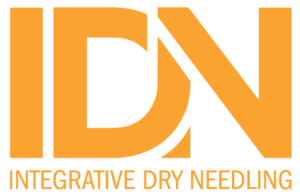Neurophysiological Effects of Latent Trigger Point Dry Needling on Spinal Reflexes
J Neurophysiol. 2024 Dec 20. doi: 10.1152/jn.00366.2024. Online ahead of print. ABSTRACT Deep dry needling (DDN) is a method to treat muscle
Prior dry needling training required.
No previous dry needling training required.
These are not dry needling courses.
Learn the neuroRelease technique ON-DEMAND
Learn MSK ultrasound On-Demand
Learn Neurologic Dry Needling On-Demand for Craniocervical conditions
Exclusive Access for IDN clinicians that have taken a course!
Home / My Account / Dry Needling Research
Neurologia (Engl Ed). 2022 Jun 2:S2173-5808(22)00062-1. doi: 10.1016/j.nrleng.2019.09.010. Online ahead of print.
ABSTRACT
INTRODUCTION: Non-pharmacological treatment of patients with headache, such as dry needling (DN), is associated with less morbidity and mortality and lower costs than pharmacological treatment. Some of these techniques are useful in clinical practice. The aim of this study was to review the level of evidence for DN in patients with headache.
METHODS: We performed a systematic review of randomised clinical trials on headache and DN on the PubMed, Web of Science, Scopus, and PEDro databases. Methodological quality was evaluated with the Spanish version of the PEDro scale by 2 independent reviewers.
RESULTS: Of a total of 136 studies, we selected 8 randomised clinical trials published between 1994 and 2019, including a total of 577 patients. Two studies evaluated patients with cervicogenic headache, 2 evaluated patients with tension-type headache, one study assessed patients with migraine, and the remaining 3 evaluated patients with mixed-type headache (tension-type headache/migraine). Quality ratings ranged from low (3/10) to high (7/10). The effectiveness of DN was similar to that of the other interventions. DN was associated with significant improvements in functional and sensory outcomes.
CONCLUSIONS: Dry needling should be considered for the treatment of headache, and may be applied either alone or in combination with pharmacological treatments.
PMID:35659858 | DOI:10.1016/j.nrleng.2019.09.010
J Neurophysiol. 2024 Dec 20. doi: 10.1152/jn.00366.2024. Online ahead of print. ABSTRACT Deep dry needling (DDN) is a method to treat muscle
Clin J Pain. 2024 Dec 17. doi: 10.1097/AJP.0000000000001265. Online ahead of print. ABSTRACT OBJECTIVES: This study compares ultrasound-guided pulsed radiofrequency (UG-PRF) with
J Clin Med. 2024 Nov 21;13(23):7032. doi: 10.3390/jcm13237032. ABSTRACT Background/Objectives: The current study aimed to characterize the adverse reactions associated with dry
© Integrative Dry Needling 2023 | All rights reserved | Designed by Weblink
Powered by ![]()
any IDN Course!
*This discount is valid for new registrations only and can not be combined with other discount codes. Offer Expires: 12/31/2023

Not sure which course is right for you? No problem – we created an intuitive process to help!